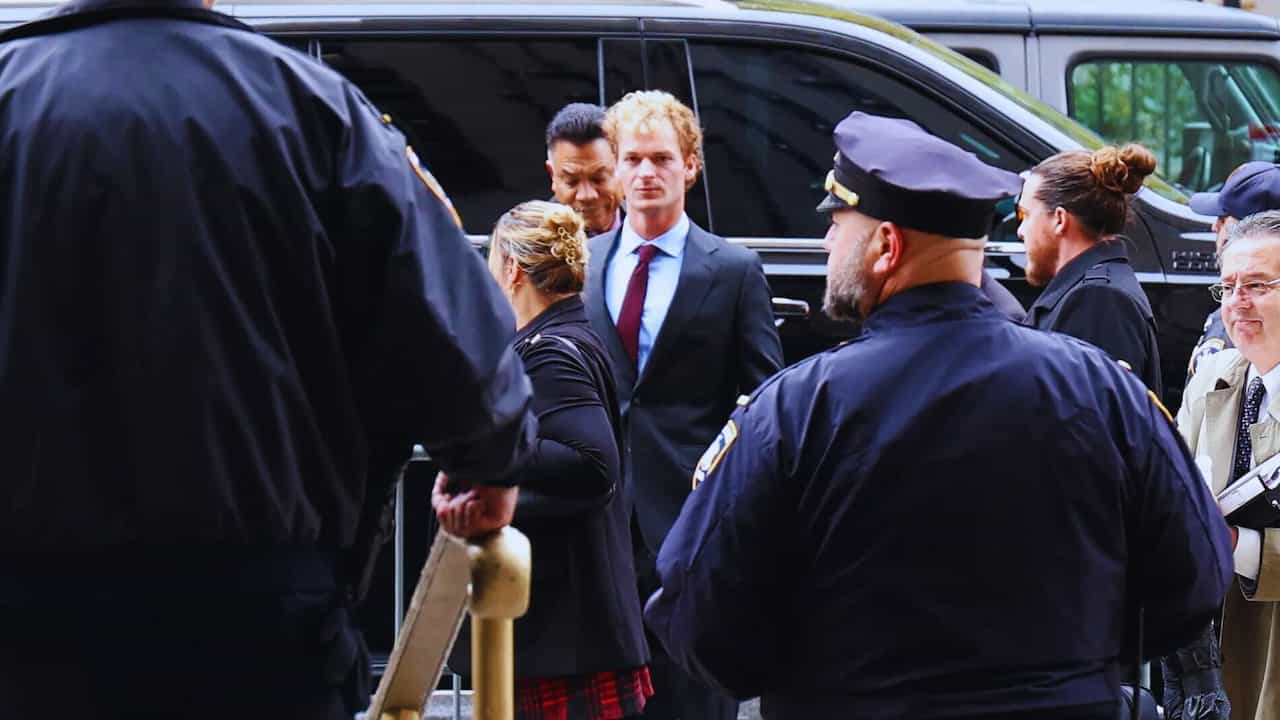Breaking: Marine Veteran’s Defense Team Challenges Official Cause in High-Profile NYC Subway Death
In a dramatic turn of events at the Manhattan Supreme Court, the defense team for Daniel Penny has concluded their case, presenting compelling new evidence that challenges the official narrative surrounding the death of Jordan Neely on a New York City subway in May 2023.
As a reporter present throughout the proceedings, I witnessed how the defense systematically built its case around three key elements: medical evidence, character testimony, and unprecedented revelations about the victim’s background.
The most striking development came through expert testimony from Dr. Satish Chundru, who directly challenged the city medical examiner’s findings. While prosecutors maintain that Neely died from a chokehold applied by Penny, Dr. Chundru argued that multiple factors contributed to the death, including sickle cell trait, schizophrenia, and synthetic marijuana use.
“This is not a chokehold death,” Dr. Chundru told the packed courtroom, pointing to detailed medical evidence that showed Neely never lost consciousness during the encounter.
The defense team, led by attorneys Thomas Kenniff and Steven Raiser, brought forward a series of character witnesses who painted a picture of Penny as a conscientious former Marine. His childhood friend described him as “kind, too kind,” while his military colleagues spoke of his reputation for being “above reproach.”
In a surprising revelation, court clerk Brian Kemef testified that Neely had an open bench warrant at the time of his death, issued just weeks before the fatal encounter. This information added another layer to the complex narrative surrounding the case.
The prosecution, led by Assistant District Attorney Dafna Yoran, fought against the defense’s medical arguments. In a heated cross-examination, Yoran challenged Dr. Chundru’s conclusions about the sickle cell trait’s role in Neely’s death, leading to several tense exchanges that required Judge Maxwell Wiley’s intervention.
Dr. Cynthia Harris, the city medical examiner who performed the original autopsy, stood firm on her finding that neck compression caused Neely’s death. She testified that this conclusion would have remained unchanged even if Neely had “enough fentanyl in his system to put down an elephant.”
The case has sparked intense debate about public safety, mental health care, and citizen intervention. Penny faces charges of second-degree manslaughter and criminally negligent homicide for his actions during the subway encounter, where witnesses say Neely was making threatening statements that made passengers fear for their lives.
The trial has become a focal point for broader discussions about New York City’s handling of mental health crises and subway safety. Defense expert Dr. Alexander Sasha Bardey testified that Neely was likely experiencing schizophrenic psychosis when he boarded the train, highlighting the intersection of mental health and public safety concerns.
As closing arguments approach, scheduled for after Thanksgiving, all eyes remain on Judge Wiley’s courtroom. The jury of twelve and four alternates will soon decide whether Penny’s actions were justified or crossed a legal line.
In this high-stakes trial, one thing becomes clear: the intersection of mental health, public safety, and individual rights continues to challenge our justice system in profound ways. The verdict in this case could have far-reaching implications for how similar situations are handled.
